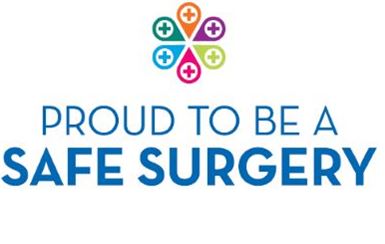January is cervical cancer awareness month.
Each year, more than 3,200 women are diagnosed with cervical cancer in the UK. This type of cancer can affect people of all ages.
The cervix is the lower part of the womb (uterus) that joins to the top of the vagina. It is sometimes called the neck of the womb. People who have a cervix include women, transgender (trans) men and people assigned female at birth.
Nearly all cervical cancers are caused by the human papillomavirus (HPV). HPV is a very common virus. 8 in 10 of us will come into contact with HPV in our lives. HPV is transmitted through skin-to-skin sexual contact. Most of the time our bodies will clear the virus, and it won’t cause any issues. Rarely, HPV lingers and develops cell changes or cancer. The HPV vaccine is administered in school for young boys and girls aged 12/13 years old, it acts by preventing HPV. A 90% reduction in cervical cancer has been shown through using the HPV vaccine.
Cervical cancer develops very slowly from abnormal cell changes in the cervix. These initial changes do not cause any symptoms, but they may be found with cervical screening tests (smear). If the tests show abnormal cell changes, treatment can prevent cancer developing.
Some of the common symptoms of cervical cancer can include:
- Vaginal bleeding unusual for you, which can include after sex, in between periods or after menopause.
- Changes in vaginal discharge
- Pain or discomfort during sex
- Pain in your lower back or pelvis.
Contact the Surgery and get the symptoms checked if you experience them. These symptoms can be embarrassing, but the earlier cervical cancer is found, the easier it is to treat.
If your cervical screening is overdue, please phone 01424 464756, alternatively IC24 based at Station Plaza also have cervical screening availability telephone: 01424 884410 to book.
For more information on cervical cancer
- What is cervical cancer? - NHS
- Cervical Cancer Awareness Month | Macmillan Cancer Support (easy read and translated versions available)
HPV vaccination
We would also like to highlight the HPV vaccine which is administered in schools for girls and boys aged 12/13 years old. It works by reducing your chances of getting human papillomavirus (HPV), a common virus that's spread through skin contact (usually when having sex) and works better before someone is sexually active.
Most types of HPV are harmless and even if we have contact our bodies usually clear the virus. However persistent HPV infection can lead to cervical cancer, genital warts and increased risk of other cancers including:
- mouth cancer
- anal cancer
- penile cancer
- vulval cancer
- vaginal cancer
If you missed getting vaccinated when you were 12 or 13, the HPV vaccine is available for free on the NHS for all young women from age 14 up until their 25th birthday and young men born after 1st September 2006.
Please contact the surgery if you missed your vaccination and would like to book it.
The HPV vaccine is also available for those outside the above catch-up program deemed at high risk of HPV persistence including men who have sex with men and those with HIV at local sexual health services.
For more information on the HPV vaccine
The universal HPV immunisation programme - with easy read, sign language and alternative languages provided.
